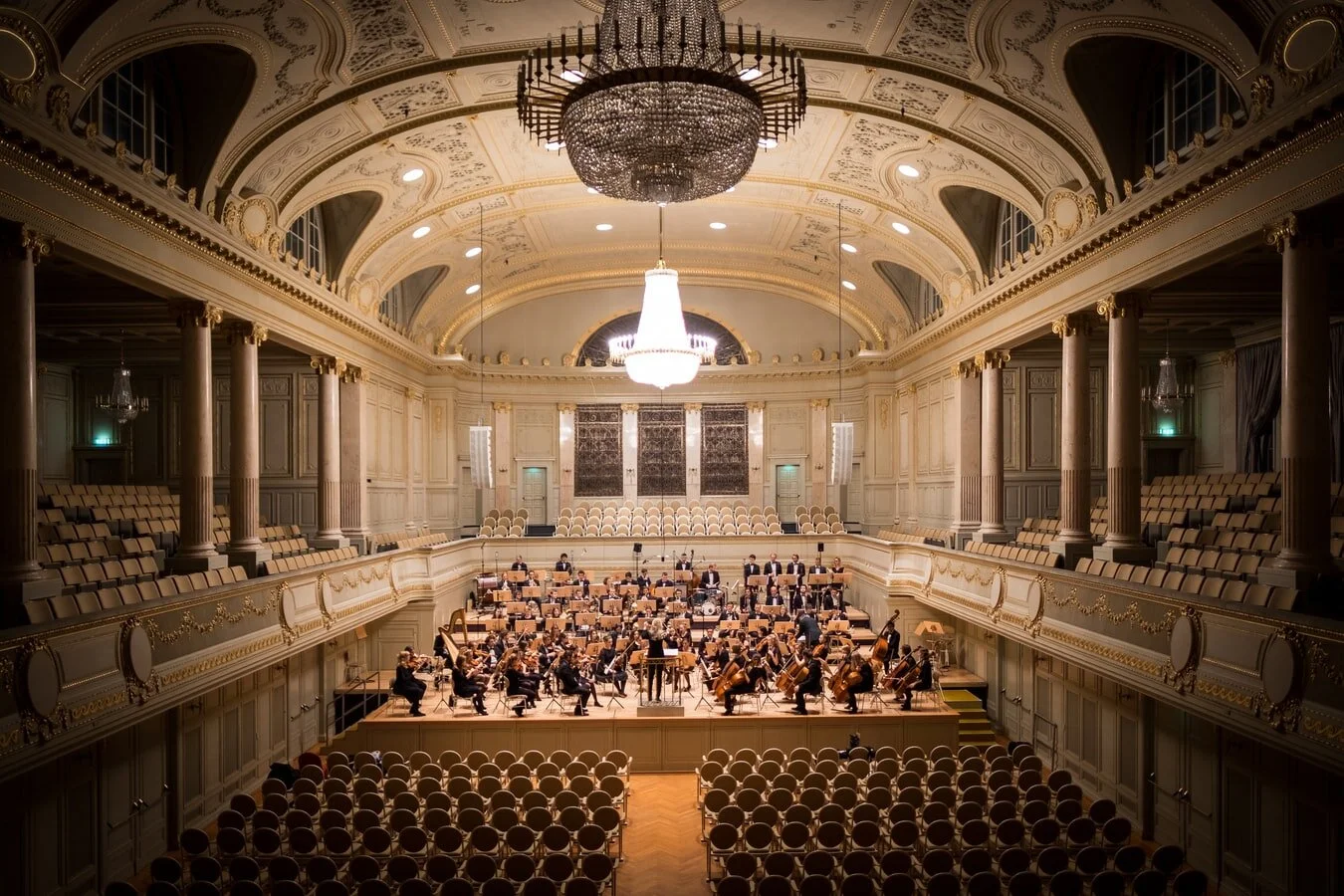I once had the fortune of witnessing a rehearsal performance by the world-acclaimed Berlin Philharmonic Orchestra. You may be thinking, “big deal, a rehearsal, what’s so good about that?”, and I’d forgive you for thinking it.However, I’d have to answer that apart from being the first time this famous orchestra has graced Australia’s shores; it was a wonderful, exhilarating and pedagogical experience that I won’t easily forget.
I was very lucky to be with a more mature friend of mine, who is far more knowledgeable about classical music and indeed orchestras than I. She gently educated me on the complex organisational structure in front of me that had one collective goal – to deliver a beautiful piece of music that would uplift and inspire the audience. And here’s what I learnt about leadership, as we sat quietly in the dark and the performance began to unfold before our eyes.
Leadership is persistent and will always want the best: When we arrived, the orchestra played their first piece. It sounded breath-taking to me. But what happened then absolutely fascinated me. Sir Simon Rattle – the conductor, workshopped with different parts of the orchestra: tweaking, repeating, playing, then tweaking again. The result was a distinctly more superior to the original, which I had no idea was even possible!
Next, was what probably struck me most.
Leadership is passionate and comes from the heart: Sir Simon conducted and led from his heart. He was fully engaged and connected almost symbiotically with his orchestra. He smiled, laughed and encouraged easily. Whenever there was room for improvement it was communicated, what seemed to me, from a place of love, whether it was for the music or the people, I didn’t know, but it didn’t matter. It was a lovely thing and his orchestra responded in kind.
Leadership is about letting the experts do their thing without taking over: Woodwind. Strings. Percussion. He didn’t necessarily play any of those instruments to my knowledge. However, he understood the beauty that each instrument was capable of, and had an amazing ability to inspire each musician to play to the best of their abilities.
Leadership is about corralling an insanely diverse group of people and talents towards a common vision: I was so impressed with how in touch Sir Simon seemed with each of the different ‘teams’ in the orchestra. He communicated perfectly with the violin-folk as easily as he did the bass players, the percussionists and so forth. While they are located in different areas, he was able to communicate easily with each performer – almost as if he was a part of their team – yet bringing them all together in unison to create an orchestral masterpiece.
Leadership listens to and seeks feedback from the experts: One thing I noticed throughout the rehearsal was how often Sir Simon consulted his first violinist, and vice versa. Quite often, the first violinist would get up out of his seat, violin in hand, and relay wise words to the talented conductor. Rather than be dismissive or annoyed at the advice, the conductor would nod in appreciation and then communicate this wisdom back to the group. This lack of attachment to ego and hierarchies while developing the piece enabled the group to honestly deal with their weaknesses and deliver a better outcome. It wasn’t just about one man; it was about how this man could be a conduit for their combined greatness.
Leadership isn’t easily dissuaded by others: Finally, I was rather struck by the seeming lack of enthusiasm by some members of the orchestra as the rehearsal progressed. This confused me and would have certainly demotivated me, if I was the one standing on stage trying to lead this group to greatness. Could it be jet-lag? Could there be irritation or disinterest creeping in? Remarkably, Sir Simon remained undeterred – he was passionate and enthusiastic; committed to bringing out the best in his people – regardless of whether he was given encouragement to continue or not. Such dedication and strength of conviction was inspiring.
So there you have it! Tacit leadership lessons from Sir Simon of the Berlin Philharmonic Orchestra. Isn’t it high time we all learnt to be great conductors: if not on the stage, then perhaps in business and life?

